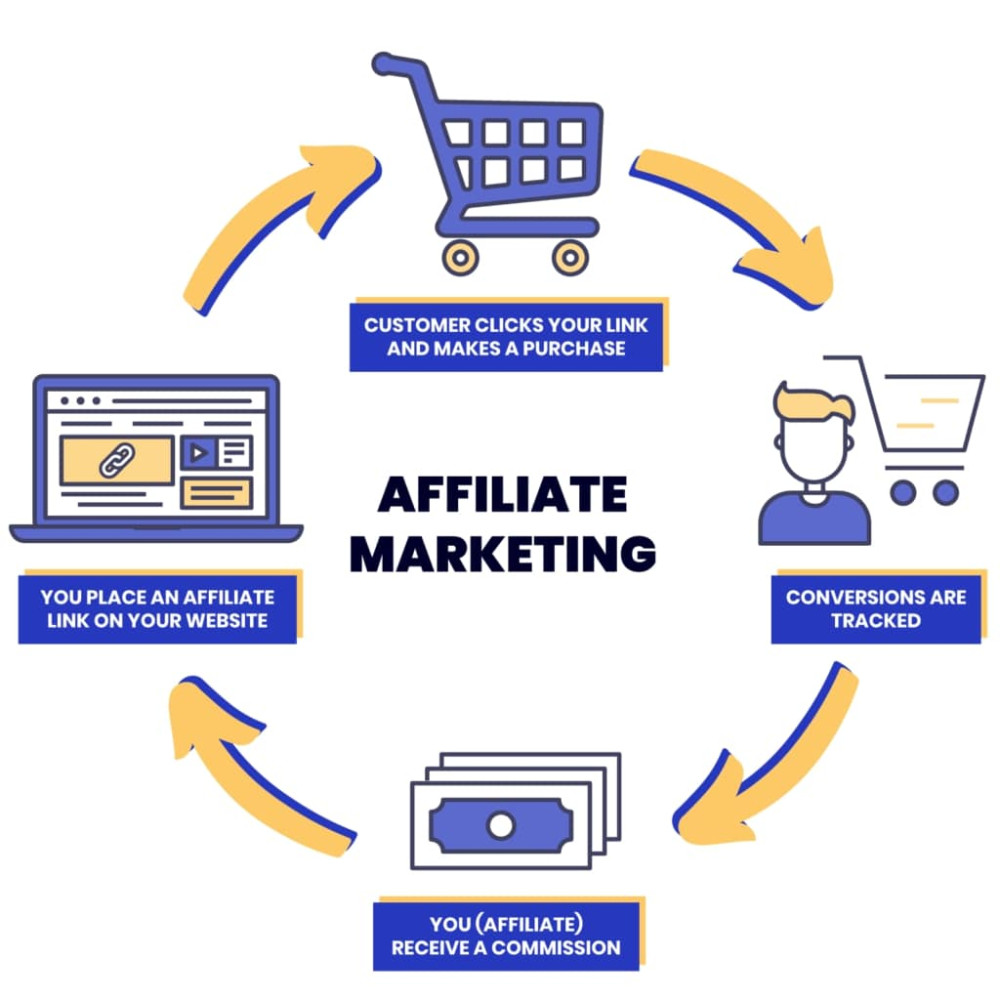What Is Affiliate Marketing? A Beginners Guide to Earning Through Promotions
The digital age has opened doors for new and exciting ways to monetize your online presence. Affiliate marketing stands out as a popular option, allowing you to earn commissions by promoting other companies' products or services. But what exactly is affiliate marketing, and how can you leverage it to turn your online space into a revenue stream? This comprehensive guide will equip you with the knowledge you need to become a successful affiliate marketer.
How Affiliate Marketing Works
At its core, affiliate marketing is a performance-based marketing strategy where you (the affiliate) earn a commission for promoting another company's (the merchant's) products or services. Here's a breakdown of the process:
Join an Affiliate Program:
Merchants establish affiliate programs, offering interested individuals the opportunity to promote their products. You'll sign up for these programs and receive a unique tracking link (often referred to as an affiliate link). This link contains an identifier that tracks clicks and sales referred by you.Promote the Products:
Once you've joined an affiliate program, you'll leverage your platform (website, social media, blog, etc.) to promote the merchant's products. This could involve writing product reviews, creating video tutorials, or simply mentioning the product within your content. The key is to create high-quality, informative content that resonates with your audience and highlights the value proposition of the promoted product.Customers Click and Purchase:
When someone clicks on your unique affiliate link and makes a purchase on the merchant's website, a cookie (a small piece of data stored on the user's browser) tracks the sale back to you. This cookie has a set expiry time, ensuring you receive credit for the referral even if the purchase isn't made immediately after clicking your link.Earn Your Commission:
Once the purchase is confirmed, the merchant recognizes the sale as originating from your affiliate link, and you earn a commission on that sale. The commission rate varies depending on the merchant and the product, but it typically ranges from a few percent to 20% or more of the sale price.
This commission-based structure incentivizes you to effectively promote the merchant's products and drive sales. By creating valuable and engaging content that resonates with your audience, you can generate genuine interest in the promoted products and earn commissions when conversions occur.
3 Types of Affiliate Marketing
The world of affiliate marketing offers flexibility to cater to different marketing styles and audiences. Let's explore the three main types of affiliate marketing:
Unattached Affiliate Marketing
Unattached affiliate marketing is ideal for individuals with a broad audience or those who don't want to focus on a specific niche. Here, you can promote a wide range of products across various categories, as long as the products align with your overall content strategy. For example, a lifestyle blogger might promote fitness trackers, beauty products, and travel accessories.
Pros:
Offers greater variety in product selection, caters to a broader audience.
Cons:
Requires a diverse audience interested in various products, can be challenging to establish expertise in multiple areas.
Unattached affiliate marketing allows for more creative freedom in product selection. However, building trust and authority with your audience can be trickier, as you're promoting a wider range of products that may not always directly connect with each other.
Related Affiliate Marketing
Related affiliate marketing is a strategic approach where you focus on promoting products that are relevant to your niche or area of expertise. This allows you to build trust and credibility with your audience, who are already interested in the types of products you're recommending. For instance, a tech blog might promote laptops, software subscriptions, and computer accessories.
Pros:
Allows you to build trust and authority within your niche, attracts a targeted audience more likely to convert.
Cons:
Limits product selection based on your niche, may require audience growth within a specific area.
By focusing on a specific niche, you can establish yourself as a trusted source of information within that community. This targeted approach often leads to higher conversion rates, as your audience is already predisposed to be interested in the products you're promoting.
Involved Affiliate Marketing
Involved affiliate marketing involves a deeper collaboration with the merchant. This might include co-creating exclusive content, participating in product launches, or even offering customer support for the promoted product. This level of involvement often leads to higher commissions but requires a stronger relationship with the merchant.
Pros:
Potentially higher commission rates, deeper brand partnerships, access to exclusive marketing materials.
Cons:
Requires more time and effort, may involve exclusivity agreements with a single merchant.
This level of affiliate marketing is ideal for established influencers or bloggers who have a strong relationship with their audience and the merchant.


